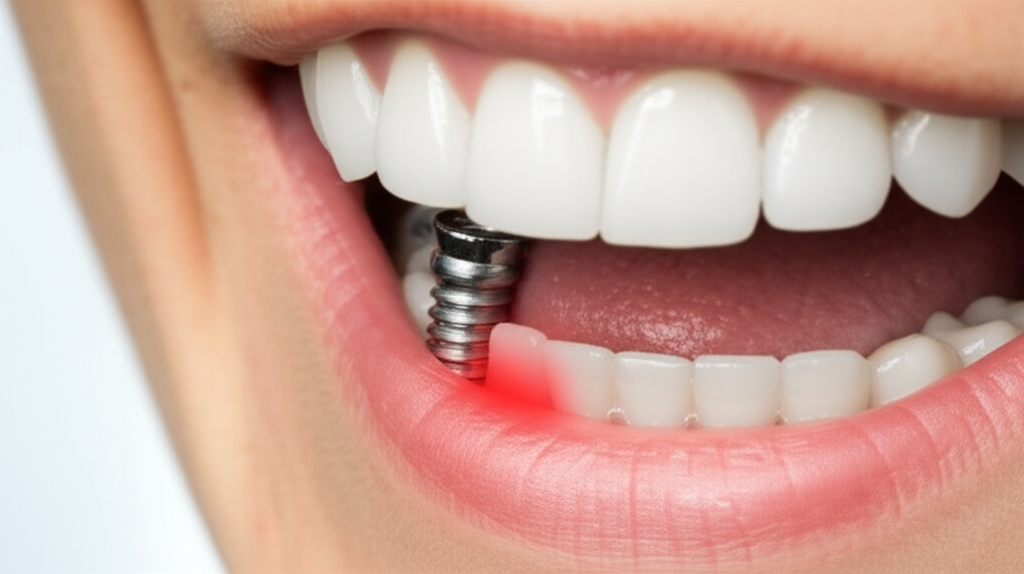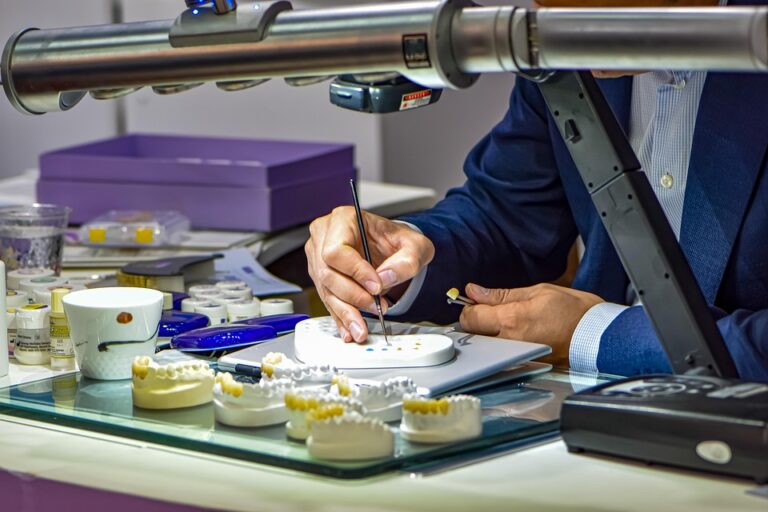
What Are the Problems with Dental Implants? A Simple Guide
Dental implants are one of the best ways to replace missing teeth, but like any surgery, things can go wrong. In this article, I’ll walk you through the real problems people face with dental implants, why they matter, and what you can do about them. You’ll find easy explanations, honest advice, and simple steps to keep your smile healthy for years.
Table of Contents
- Introduction: Can Dental Implants Really Go Wrong?
- Why Should You Care About Implant Problems?
- How Often Do Dental Implants Fail?
- What Are the Early Problems With Dental Implants?
- What Can Go Wrong Later?
- What Are the Signs and Symptoms of Dental Implant Problems?
- What Makes Dental Implants Fail?
- Can You Prevent Dental Implant Complications?
- What To Do If You Notice Something’s Wrong
- How Are Dental Implant Problems Treated?
- Should You Still Consider Dental Implants?
- FAQ: Common Questions About Dental Implant Problems
- Summary: What You Need To Remember
Introduction: Can Dental Implants Really Go Wrong?
Let’s be honest—dental implants kind of look and feel like real teeth, and that’s why so many folks go for them. But no tooth fix is perfect. Just like with any operation, there are risks and things that can go wrong. I know this from personal experience; I’ve seen family members have both easy times and rough spots with their implants.
When you get a dental implant, a metal piece (usually titanium) is put into your jawbone, and a crown goes on top. Most times, it just works. Sometimes, it doesn’t. Knowing what can go wrong means you can spot trouble early, get help fast, and protect your new tooth.
Why Should You Care About Implant Problems?
If you’re thinking about getting an implant, you should know the whole story. Lots of people wonder, “What could go wrong?” before saying yes to any surgery—even dental implants. Some already have implants but now feel pain, swelling, or loose bits and ask, “Is this normal?”
Both types want real answers—not just sales talk. I know that the best choices happen when you know the good and the bad. After all, catching a little problem early can make a big difference. That’s why I want to show you the most common implant problems and how to avoid them.
How Often Do Dental Implants Fail?
Here’s the main thing everyone wants to know: Do dental implants fail a lot? The good news—no, not really. Dentists say that implants work out fine in about 95-98% of cases over ten years. That’s better than most things in life! Still, up to 5% do have early or late trouble, and that number goes up if you smoke or have certain health problems.
Here’s a quick look at the numbers:
| Problem Area | How Common is it? |
|---|---|
| Early Failure (First months) | 1%-5% |
| Late Failure (years after) | 2%-5% |
| Peri-implantitis (Gum infection) | 10%-40% of implants |
| Mechanical problems (loosening, fracture) | Up to 10% |
| Nerve damage | Less than 1% (more if not planned well) |
| Sinus trouble (top jaw only) | 2%-4% get this |
So, while problems are not common, they do happen. Your job? Know what to watch for and be ready.
What Are the Early Problems With Dental Implants?
Think of the first days and weeks after your surgery as the most important time for your new implant. That’s when your body and the metal root (the “implant”) need to connect well. This is called osseointegration—that means “the bone grows around the implant.”
Sometimes things go wrong:
- Poor Bone Fusion (Failed Osseointegration): If your bone is too soft or thin, or if the implant moves too much, the bone doesn’t hold the implant tight. This can happen if there’s too much pressure or if you have health problems like diabetes.
- Early Infection: Germs love an open wound. If bacteria get in right after surgery, infection can start. This brings pain, swelling, and sometimes pus. Infection can make the implant loose if it’s not fixed.
- Surgical Injury: Mistakes sometimes happen. If the dentist puts the implant too close to a nerve or into your sinus (top jaw), you might feel numb, tingly, or have sinus trouble.
What Can Go Wrong Later?
So, your first few months with your implant go well. Are you all clear? Not always.
Late problems can show up months or even years after you’ve forgotten about your surgery. Here’s what could happen:
- Peri-implantitis: This means infection and swelling around your implant, much like gum disease around normal teeth. Your gums get red and bleed. In bad cases, the bone around your implant goes away.
- Mechanical Problems: Even a metal implant can break or get loose! Screws, crowns, or the implant itself may crack or wiggle if you grind your teeth (called bruxism) or bite too hard.
- Nerve Problems: Sometimes, the area around the implant stays numb or tingly for months. Nerve damage may not heal, especially if the implant was put too close to the nerve.
- Looks: Sometimes you’ll see a dark line along your gum. That’s the metal showing. If your gum shrinks, or if your implant is too shallow, it might look odd when you smile.
- Sinus Trouble: People with implants in the top jaw can get sinus pain or stuffiness—usually if the implant is poking into the sinus space.
What Are the Signs and Symptoms of Dental Implant Problems?
Most dental implant problems don’t happen without warning. Your body will send you signs! Here’s what you may notice:
- Pain or discomfort that doesn’t go away or gets worse when you chew.
- Swelling, redness, or heat around the implant that hangs around.
- Loose feeling when you touch the implant or bite down.
- Bleeding, pus, or a bad smell coming from the area.
- Numbness or tingling in your lips, chin, or tongue.
- Sinus pressure, stuffiness, or leak (if you have top jaw implants).
- See metal, gum line shrinking, or food getting stuck at the gum line.
- Allergy signs: rash, itch, or swelling (super rare with new titanium or zirconia implants).
If you notice any of these, don’t wait. It’s easier to fix small problems now than big ones later.
What Makes Dental Implants Fail?
You might wonder, “How can things go bad if my dentist is good?” There’s a few reasons—some you can control, some you can’t:
- Not Cleaning Well: Not brushing and flossing lets germs build up. That’s the main reason for gum infection and bone loss!
- Smoking: Smokers have up to three times the risk of implant failure. Smoking makes healing slow.
- Big Health Problems: Things like bad diabetes, weak bones, or immune problems make healing harder and let infection grow.
- Grinding Teeth: Clenching or grinding puts so much pressure on implants that even metal can get loose or snap.
- Weak Bone: If your jawbone is too thin, soft, or unhealthy, the implant won’t lock in.
- Dentist Skill: Dentists with not enough training or who use cheap parts raise your chance of all these problems.
- Bad Placement: Even small mistakes in angle or position can cause nerve pain, sinus worry, or lost implants later.
Can You Prevent Dental Implant Complications?
Don’t stress—you can do a lot to lower the risks! Here’s what to know before, during, and after your implant:
Before Surgery:
- Pick a trained and skilled dentist, like ones who use a trusted implant dental laboratory.
- Make sure your jawbone is ready—sometimes you’ll need a bone build-up first.
- Talk about any health issues, medicine you take, or habits (like smoking).
After Surgery:
- Clean your teeth, implants, and gums every day. Use a soft brush, floss, or even little brushes for implants.
- Go to your dentist often for checkups and cleaning.
- Don’t smoke—especially while healing!
- Use a night guard if you grind your teeth.
- Follow all after-surgery rules exactly. Rest, take your medicine, and don’t mess with the healing spot.
Doing these things helps a lot. Most people with trouble skip their dentist visits or don’t follow the rules. Don’t do that.
What To Do If You Notice Something’s Wrong
You know your mouth best. If you feel like something’s not right—maybe pain while chewing, swelling, bleeding, pus, or a loose implant—don’t wait. Call your dentist right away. Fixing things early can mean a quick fix instead of losing the implant.
Here’s a quick list of “need help fast” signs:
- Pain that won’t leave or gets worse
- More swelling or redness after the first week
- Bleeding, pus, or a bad smell
- Feeling like your tooth or crown is moving
- Numbness that doesn’t get better
Noticing something weird? It’s better to be safe. A good dentist will want to check your implant quickly.
How Are Dental Implant Problems Treated?
No one wants to be told their new tooth is in trouble. The good thing is, most implant problems can be fixed! It depends on what went wrong.
Non-Surgical Options:
- Antibiotics: For mild infections.
- Professional cleaning: Cleaning really well around the implant to get rid of germs.
- Fixing your bite: If the implant gets too much pressure, your dentist might adjust your bite.
Surgical Options:
- Fixing gum infection: If bone loss is bad, your dentist might need to lift your gum, clean the spot, and do a bone patch.
- Taking out the implant: If it’s loose, it might need to come out. After healing, sometimes you can get a new one.
- Fixing nerves: For nerve pain that won’t heal, small surgeries might help—but results aren’t always perfect.
It sounds rough, but acting fast gives you a better chance to keep or replace your implant.
Should You Still Consider Dental Implants?
Reading all this, you might think, “Is it worth the risk?” I get it. Here’s how I see it: dental implants are still the best choice for missing teeth. Most folks enjoy years—even decades—of eating and smiling without any trouble!
Knowing the risks and how to spot them helps you be smart. Just be honest about your health, choose a careful, skilled dentist, and keep up with cleanings.
Thinking about implants? See what a crown and bridge lab can do for your treatment.
FAQ: Common Questions About Dental Implant Problems
Q: How long do dental implants last?
A: Most dental implants last 10-20 years, with many lasting a lifetime. Success depends on your health and basic care.
Q: Is getting a dental implant painful?
A: You shouldn’t feel pain during the process because you’ll get numbed up. Some aching and swelling after is normal for a few days. If pain is strong or won’t go away—see your dentist.
Q: Can you be allergic to dental implants?
A: Very rarely, people react to titanium or other metals. If you have metal allergies, tell your dentist so they can use a different material like zirconia.
Q: What if my implant feels loose?
A: If your implant or crown feels loose, you need to see your dentist fast. You might need a simple fix—or something more.
Q: Can smokers get dental implants?
A: Smokers can get implants, but their risk of losing one is up to three times higher. Quitting is the best way to protect your smile.
Summary: What You Need To Remember
Here’s the quick version—save these tips!
- Dental implants are safe for most, but problems can happen.
- Problems may show up early (weeks to months) or late (months to years).
- Watch for pain, swelling, bleeding, loose parts, or strange feelings.
- Brushing, not smoking, and seeing your dentist keep problems rare.
- The right dentist, good prep, and lab work matter!
- Don’t ignore warning signs. Getting help early = easier fix!
- Implants last many years, feel real, but you need to take care of them.
Want to learn more about dental options? Check out these helpful resources: implant dental laboratory, crown and bridge lab for more details and support.
Dental implants can give you confidence and comfort. Be smart, stay in the loop, and keep smiling!








